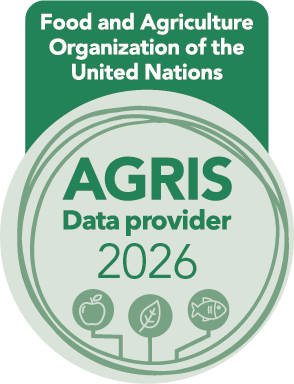Farmers’ Perceptions of the impact of climate change on apple production in lower Mustang, Nepal
DOI:
https://doi.org/10.26832/24566632.2024.090102Keywords:
Apples, Climate change, Impacts, Perception, ProductivityAbstract
Undoubtedly, climate change is becoming a worldwide concern due to its great sensitivity and detrimental effects on livelihood. The government, policymakers, and other relevant stakeholders are striving to come up with novel and innovative approaches to combat the effects of climate change. Nevertheless, understanding and perceptions of the issue among local farmers are more crucial before making mitigation or adaptation plans. It’s them who are actually more exposed to these environmental works and who are on the frontlines of climate change. So, the study was conducted in 2022 at Lower Mustang to understand how farmers perceive climate change, how it has impacted apple production, and to find discrepancies between their perceptions and the actual change in climatic variability recorded by the Department of Hydrology and Meteorology (DHM). Temperature and precipitation were two climatic variables that were taken into account to investigate the significant effects they have on the rate of apple production. Altogether, 60 households from Lower Mustang were selected randomly for the study. Pre-tested interviews, focus group discussions, key informant interviews, as well as secondary data from DHM, the Ministry of Agriculture and Livestock Development (MoALD), etc. were used to collect the required information. The majority of farmers observed an increase in temperature (83.30%) and an unpredictable increase in rainfall (98%), which are consistent with the actual change in temperature and precipitation recorded between 1991 and 2021. Findings show that the average annual temperature and mean annual precipitation are increasing at a rate of 0.012°C per year and 0.4146 mm per year, respectively. This has resulted in the outbreak of significant amounts of diseases and insect pest infestations that have a direct impact on the quality and quantity of apples. The majority of farmers acknowledged that rainfall was the most significant climatic hazards that negatively impacted apple production, followed with hailstones having an impact on apples during flowering and fruiting. Farmers in the study area are limited to intercropping practices, mostly as an adaptation strategy to combat the impacts of climate change. The study concluded that farmers perceived climate change; they are aware of the term ‘Climate Change’ but haven’t taken any significant adaptation measures towards it. So, there is an immediate need for effective adaptation mechanisms, taking into account farmers' perspectives, to make Lower Mustang self-sufficient in apple production.
Downloads
References
Adhikari, D., Prasai, R., Lamichhane, S., Gautam, D., Sharma, S., & Acharya, S. (2021, December). Climate Change Impacts and Adaptation Strategies in Trans-Himalaya Region of Nepal. Journal of Forest and Livelihood .
Bhadra, R., Neupane, B., & Khadka, U. R. (2021). Induced Impacts of Climate Change on Livelihood and Migration in Upper Himalayas: A Case of Mustang, Nepal. Handbook of Climate Change Management , 2229-2269.
Chaudhary , P., & Bawa, K. S. (2011). Local perceptions of climate change validated by scientific evidence in the Himalayas. The Royal Society, 7(5). https://doi.org/10.1098/rsbl.2011.0269
FAO. (2017). The State of Food and Agriculture 2017: Leveraging Food Systems for Inclusive Rural Transformation. Rome. Retrieved from http://www.fao.org/3/a-I7658e.pdf
Government of Nepal, Ministry of Agriculture and Livestock Development, MoALD. (2022). Statistical information on Nepalese agriculture (2020/21). Kathmandu.
Government of Nepal, Ministry of Finance, MoF. (2022). Economic Survey 2021/22. Kathmandu.
Hamal, R., Thakuri, B. M., Poudel, K. R., Gurung, A., & Yun, S. J. (2022, July 22). Farmers’ perceptions of climate change in Lower Mustang, Nepal. Environmental Monitoring and Assessment , 194.
ICIMOD. (2019). The Hindu Kush Himalaya Assessment: mountains, climate change, sustainability and people. Springer Nature.
IPCC. (2007). Climate Change 2007: The Physical Science Basis: Contribution of Working Group I to the Fourth Assessment Report of the Intergovernmental Panel on Climate Change. Cambridge, United Kingdom and New York, NY, USA: Cambridge University Press.
IPCC. (2014). Climate Change 2014 Synthesis Report: Contribution of Working Groups I, II and III to the Fifth Assessment Report of the Intergovernmental Panel on Climate Change. Geneva, Switzerland: Cambridge University Press.
Khanal, U. (2014). Perception and adaptation of the producers to the impacts of climate change in apple production: an assessment of mustang district of Nepal. The Journal of Agriculture and Environment, 15.
Malla, G. (2008, June). Climate change and its impact on nepalese agriculture. The Journal of Agriculture and Environment, 9.

Downloads
Published
How to Cite
Issue
Section
License
Copyright (c) 2024 Agriculture and Environmental Science Academy

This work is licensed under a Creative Commons Attribution-NonCommercial 4.0 International License.




